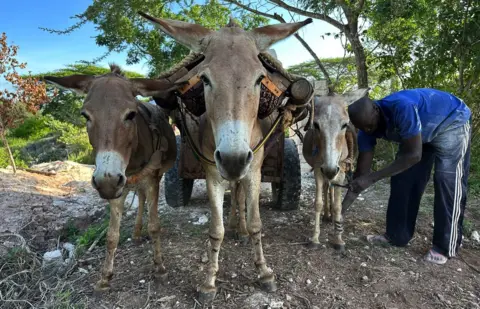By The Arusha News Reporter
Animal welfare activists believed they had won the battle against the illegal donkey meat and skin trade — but the problem persists. Reports indicate that over 150 donkeys are stolen and smuggled into neighbouring Kenya every month from the Arusha Region alone, reportedly destined for China, where their hides are in high demand for use in traditional Ejiao medicine, mostly consumed by the wealthy.
Livingstone Masija, Director of the Arusha Society for the Protection of Animals (ASPA), recently told journalists that Tanzania’s donkey population, once estimated at over 600,000, is rapidly declining due to increasing demand from the Chinese market. Donkey hides are processed into a gelatinous substance used in traditional Chinese medicine, primarily as a blood tonic known as Ejiao.
Ejiao is believed to revitalise the body and treat a range of conditions, including anaemia, insomnia and dizziness. Some sources also claim it strengthens the immune system — making the trade highly lucrative, but also increasingly dangerous for the survival of donkeys, which are predominantly used for transport and farming animals in Tanzania and most countries in East Africa. ASPA estimates over 7,000 donkeys are trafficked from Tanzania each year, despite a national ban on donkey slaughter and meat consumption — an unfamiliar culinary choice in Tanzania, but one that gained traction around a decade ago.
Specialised abattoirs established in Dodoma and Shinyanga in 2014 worsened the situation. Although donkey meat is not widely consumed in Tanzania, it was sometimes mixed with beef and sold to unsuspecting customers, while hides remained the main export product. In recent years, several African countries, including Tanzania, banned the export of donkeys and their by-products to China in 2018. Nevertheless, the illicit trade continues.
ASPA’s Communications Officer, Abinego Martin, called on the media to help raise awareness, emphasising that donkeys are crucial to Tanzania’s rural economy, especially as a source of transport and farm labour. Misuse, abuse and now cross-border smuggling, seriously threaten their survival.
Arusha Regional Police Commander (RPC), Justine Masejo, told The Arusha News that he was unaware of the latest developments, but confirmed that sporadic raids are conducted in collaboration with livestock authorities to curb illegal exports. “Those arrested are usually prosecuted,” he said.



